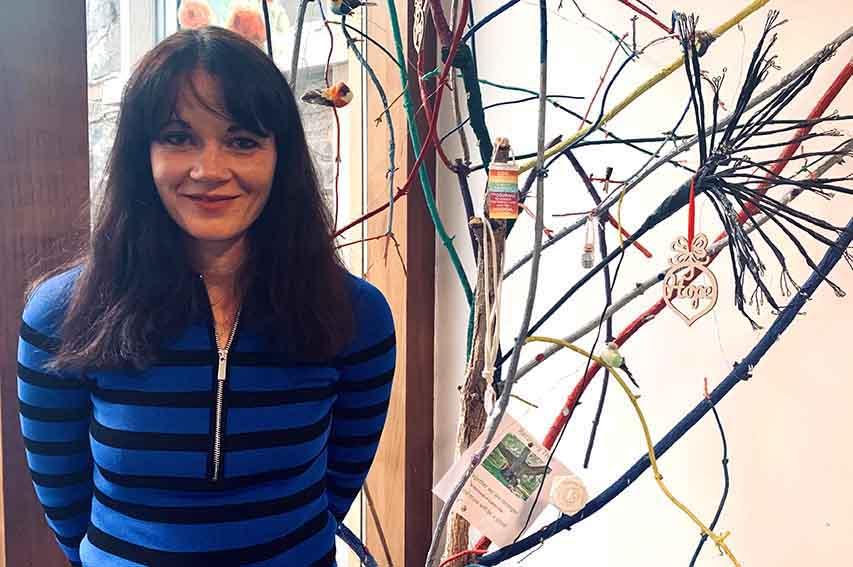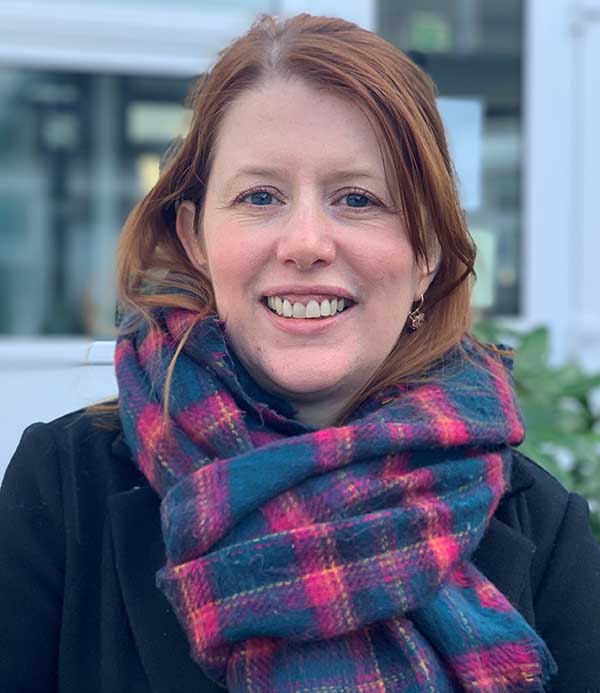Self-manage your mental health with a course at the Recovery College
Located in Ards Hospital, the Recovery College offers courses on mental health and wellbeing.
With a core focus on recovery, the courses offered are designed to increase knowledge and skills and promote self-management.
Sharon Hastings said: “I first accessed the Recovery College back in 2016. I was a student then as a Peer Support Trainer.
“I was referred by my Community Psychiatric Nurse (CPN), but you don’t actually need a referral and that’s how I came to be there.
“At first I learnt a bit about recovery, and it was really amazing to me as I had been diagnosed with a severe and enduring mental illness, a psychotic illness, and I just thought that it wasn’t possible for someone like me to recover.
“I thought that maybe, if you had mild depression or anxiety, that you could, but when I went to the College and people there genuinely believed it was possible to have a better life.

“They weren’t talking about a cure and even today I wouldn’t say I’m cured but they were talking about building a life, a life that was worth living and that is what I started out aiming for.”
Sharon explained how the tools she learnt at the Recovery College, along with her supportive husband, family, friends, the right medication and her faith, combined to work positively for her.
“When I accessed the College I was a bit of a shell of myself. I had graduated several years earlier as a Doctor, but I had been quite traumatised by my illness resulting in very low self-esteem.
“I had endured a lot of losses, my career, hobbies and interests and I had to rebuild my life.
“When I went to College, as well as giving me back that hope, it gave me back some control.
“I was taught about Wellness Recovery Action Planning – WRAP, a system of six stages which includes early warning signs, your specific stressors as a way to stave of crisis.
“I have shared my WRAP plan with my husband and family members so that they know this is what we need to do if things have broken down.
“It’s an overall tool for the person living with mental illness, or even for those without severe mental health issues, it can really give you that control over your life.
“The College is really accessible, welcoming and I would really recommend it.
“I’m really enjoying working with the College in my role and with the team. We are part of something very positive and feels like I have rebuilt my life again.”
Recovery College Manager Alan Dagg said: “For several years now, research and evidence has reinforced the connections between mental and physical health.
“Our challenge is how we encourage people to treat their mental wellbeing with the same intention and care as their physical well-being.
“In the College we believe that it begins with awareness and learning skills, through education about how control, hope and opportunity can counteract the negative impacts.”
Alan added: “This journey of prioritising mental health is a lifelong commitment.
“It involves building skills through practicing positive self-help strategies, such as those outlined in the ‘Take Five’ strategy: give, be active, connect, keep learning, and take notice.
“However, sometimes more help is needed and that is why we must emphasise empowering others to consider when, how and where to seek help.”
“The problem in finding where to reach out, might be the easiest of all these steps.
“It’s not always the lack of resources that is typically the problem, but the knowledge, connection and sometimes availability that can take some effort.
“The first and most obvious support is to start with your local or out-of-hours GP.
“But there are also crisis lines that can provide some much needed support too, both for a person experiencing crisis, along with those supporting them. Lifeline is a wonderful resource here in Northern Ireland that is available 24/7.”

Mental Health Manager at the Downshire Hospital Fiona Dagg added: “In the Recovery College there is a whole range of support available.
“This support includes Peer Support Workers who can talk with people around what their specific needs are in terms of attending a course.
“Within the College there is a whole variety of courses from building your wellbeing, resilience all the way through to mindfulness and suicide intervention skills.
“The message is very much that you are not alone in accessing the College.
“The College is not just for people who are experiencing and living with mental illness, but it’s open to anybody who wants to learn about their own mental health and wellbeing, for yourself or if you are concerned about a family member.
“Our offices are located at Lough House, but it is worth knowing that we cover the whole of the South Eastern Trust area and we know that people, for whatever reason, might not want to come onto a hospital site to attend training or education sessions.
“Therefore, we do run courses in community centres, some church halls, places that are easily accessible and also online from the comfort of your own home.”
To find out more about the Recovery College or to register as a student telephone 028 9041 3872 or email:
recovery.college@setust.hscni.net
or check out the website at:


























